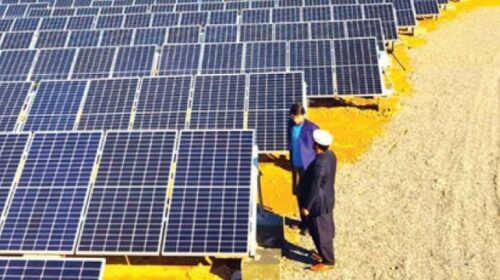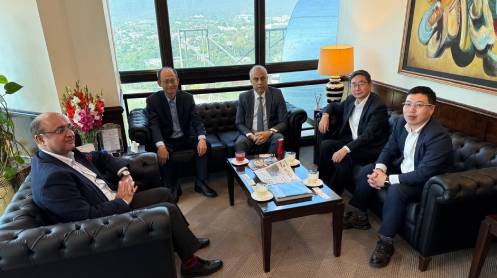The government’s plan to inject 10,000 MW of electricity through solar power projects is under threat following opposition from power distribution companies interested in maintaining their monopoly. In order to retain their monopoly, Power Distribution Companies (Discos) are placing hurdles in implementing the net metering system for domestic consumers who have installed solar power systems.
Prime Minister Shehbaz Sharif, and other cabinet members, had expressed serious concerns when this issue was taken up in a recent meeting. Furthermore, there were reports that power distribution companies had bound domestic consumers who installed solar systems to get verification from dummy companies to charge additional sums of money.
While the government has been working to inject solar power into the system through small projects due to rising energy prices, power distribution companies have been causing hurdles in the process of net metering. During another controversy over net metering, some parties had approached the prime minister and former prime minister, Shahid Khaqan Abbasi – currently heading the Energy Task Force – complaining that the National Electric Power Regulatory Authority (Nepra) had made amendments to discourage rooftop solar installation. In a letter sent to Nepra and the government, consumers appreciated the government’s initiative to launch 10,000 MW of solar projects in the country.
While addressing Khaqan Abbasi, they emphasised that in 2015, during Nawaz Sharif’s period, the concept of net metering was introduced and as a consequence, roof-top solar installations began across the country. Despite the non-implementation of the true net metering concept, there has been enormous interest in solar power due to continuous episodes of loadshedding in Pakistan.
The letter, however, stated that this interest is likely to diminish as Nepra, through a Draft Notice published on August 24, 2022, was considering bringing the net metering customers at par with the bulk suppliers of power in the country. At various public hearings, senior officials of Nepra have opined that the country already has excess power capacity and that therefore there is no need to add further generation into the system.
For the public however, Nepra’s regulations are complicated and in the draft notice, Nepra has not even explained the consequences this ‘minor change’ will have on electricity bills. “However, we are afraid that since the notice is already in the form of a SRO, Nepra as per its on-going practice of not paying attention to public opinions, will go ahead and implement the change. This will discourage net metering and substantially reduce the pay-back period of those who have already installed rooftop solar panels,” read the letter.
In response, Nepra released a statement clarifying that the no amendment has been made to net-metering regulations yet. For now, the power regulator has only sought comments from the general public. The statement further explained that the “impact of the above change is only applicable to 20,700 consumers across Pakistan who have been allowed net metering as per the regulations approved by the regulator.” “The proposed amendment will not have any impact on selfconsumption, as well as netting off of the units.
The units will be netted off as per the approved mechanism. The amendment in the regulations only applies to the excess units sold by net metering consumers. It is further clarified that the impact of any higher cost paid on excess units will be shared by remaining consumers on the grid,” read the statement. Nepra further clarified that it “fully supports the government’s solar initiative and as such, Nepra’s net metering regulations have absolutely no impact on the government initiative that seems to be again misquoted in the mainstream and social media.
Nepra welcomes input from all stakeholders and any decision in this regard would be taken after giving due consideration to the comments received from stakeholders and keeping in view the public interest.





